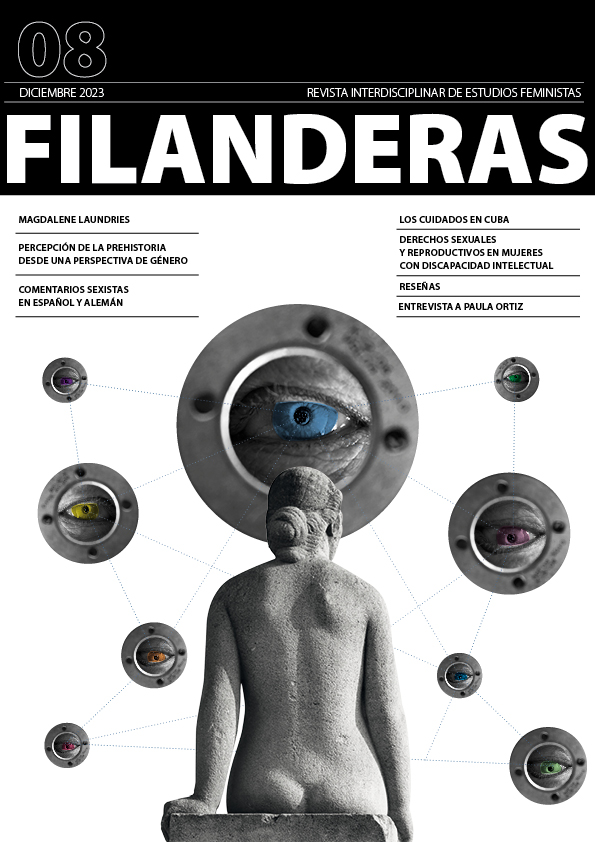The Magdalene Laundries in Ireland: making sense through an analysis of Sebastian Barry’s The Secret Scripture
DOI:
https://doi.org/10.26754/ojs_filanderas/fil.202389997Keywords:
Magdalene Laundries, Trauma, Vulnerability, affect studies, ResilienceAbstract
This essay addresses the transformative power of literature insofar as it is a fundamental tool to learn about experiences suffered by other people. Literature decisively contributes to configuring a palimpsest of veiled stories, affections and ways of life that allow us to better understand our History and to be able to exercise a political function of resistance and resilience. Based on a rigorous textual analysis of Sebastian Barry’s novel The Secret Scripture (2008), as well as some narratological strategies, the use of analepsis and a noticeable fragmented narrative, this methodological approach will be complemented with the use of other theoretical frameworks such as feminist studies, affect studies and vulnerability studies. The main aim of this essay will focus on revealing the intertextual codes inscribed in the personal conscience by Irish culture and society, which led to the confinement and punishment of all those women who did not adjust to their role as wives and mothers within marriage, depriving them of their lives and their children. Although such an experience is a traumatic event in itself, this dissertation will mainly focus on how Barry’s work entails a political commitment that implies a redefinition of the traditional concept of vulnerability.
Display downloads
Downloads
Published
Issue
Section
License
Copyright (c) 2023 Zoe Bonacho

This work is licensed under a Creative Commons Attribution-NonCommercial 4.0 International License.
Authors who publish in this journal agree to the following terms:
They retain authorship rights and grant the journal the right to be the first publication of the work as well as license it under a Creative Commons Attribution-BY-NonCommercial 4.0 International that allows others to share the work without any commercial purpose and an acknowledgement of authorship of the work and initial publication in this journal. As the Creative Commons standards define, "this license enables reusers to distribute, remix, adapt, and build upon the material in any medium or format for noncommercial purposes only, and only so long as attribution is given to the creator. CC BY-NC includes the following elements:
- BY: credit must be given to the creator.
- NC: Only noncommercial uses of the work are permitted".





